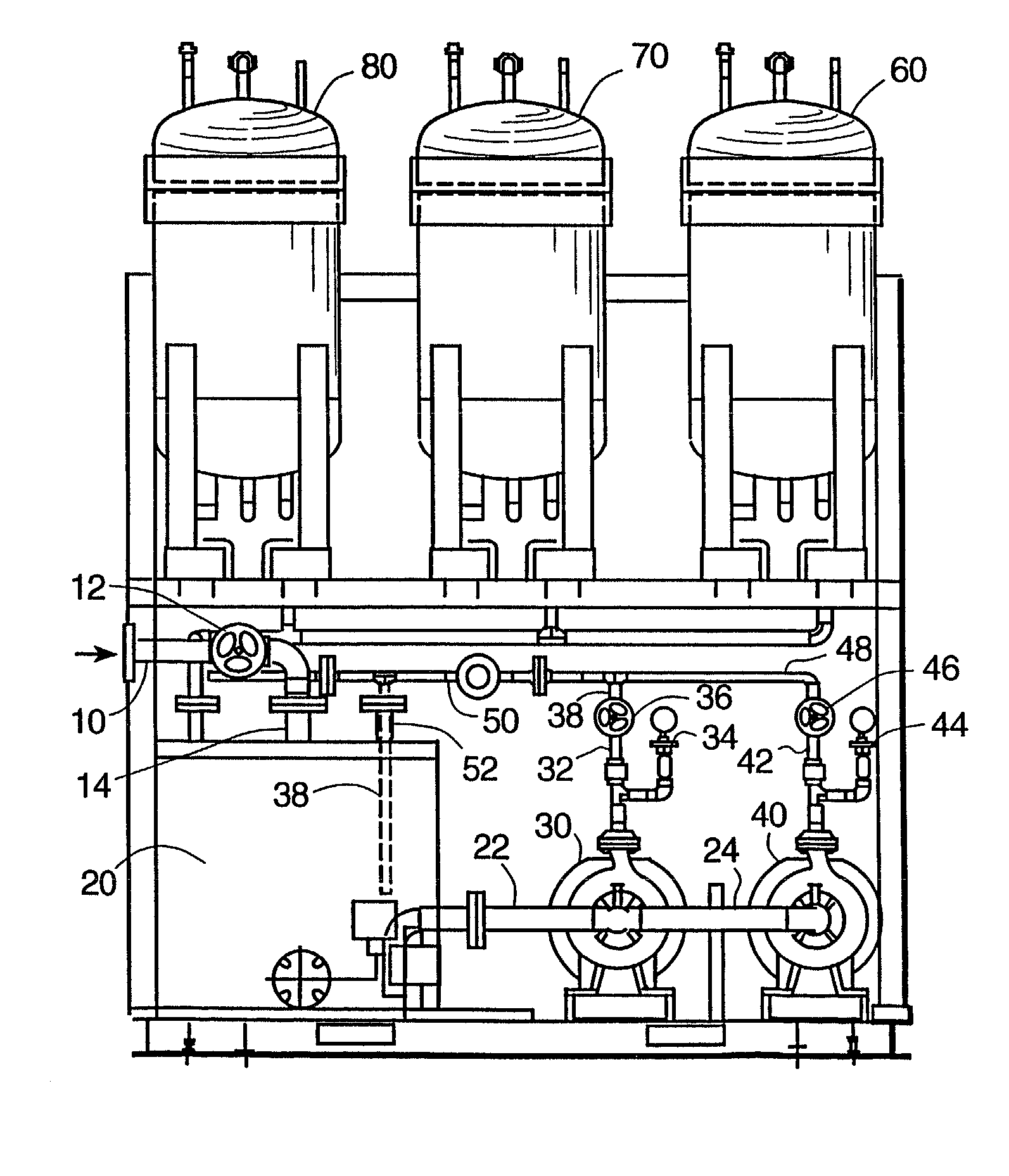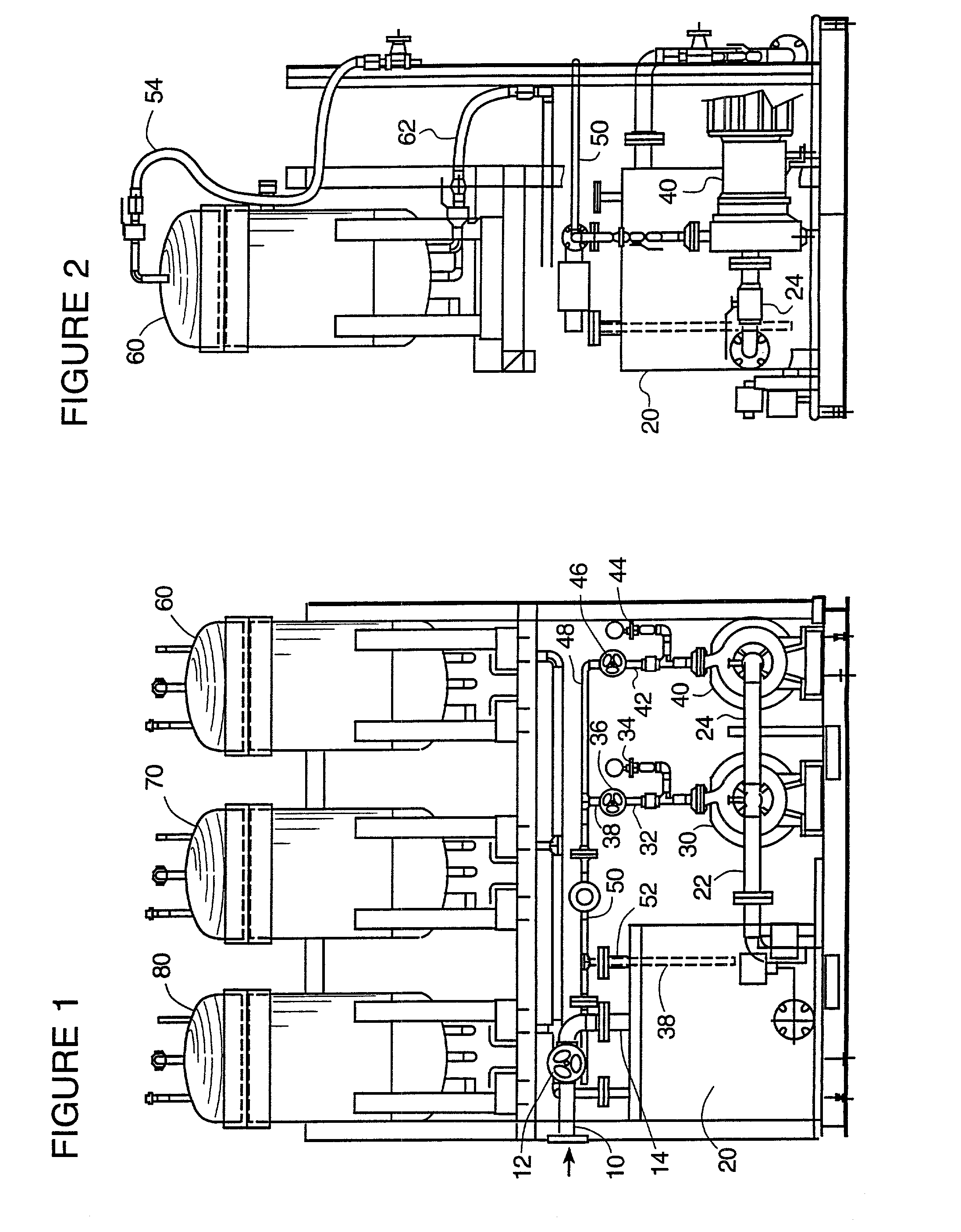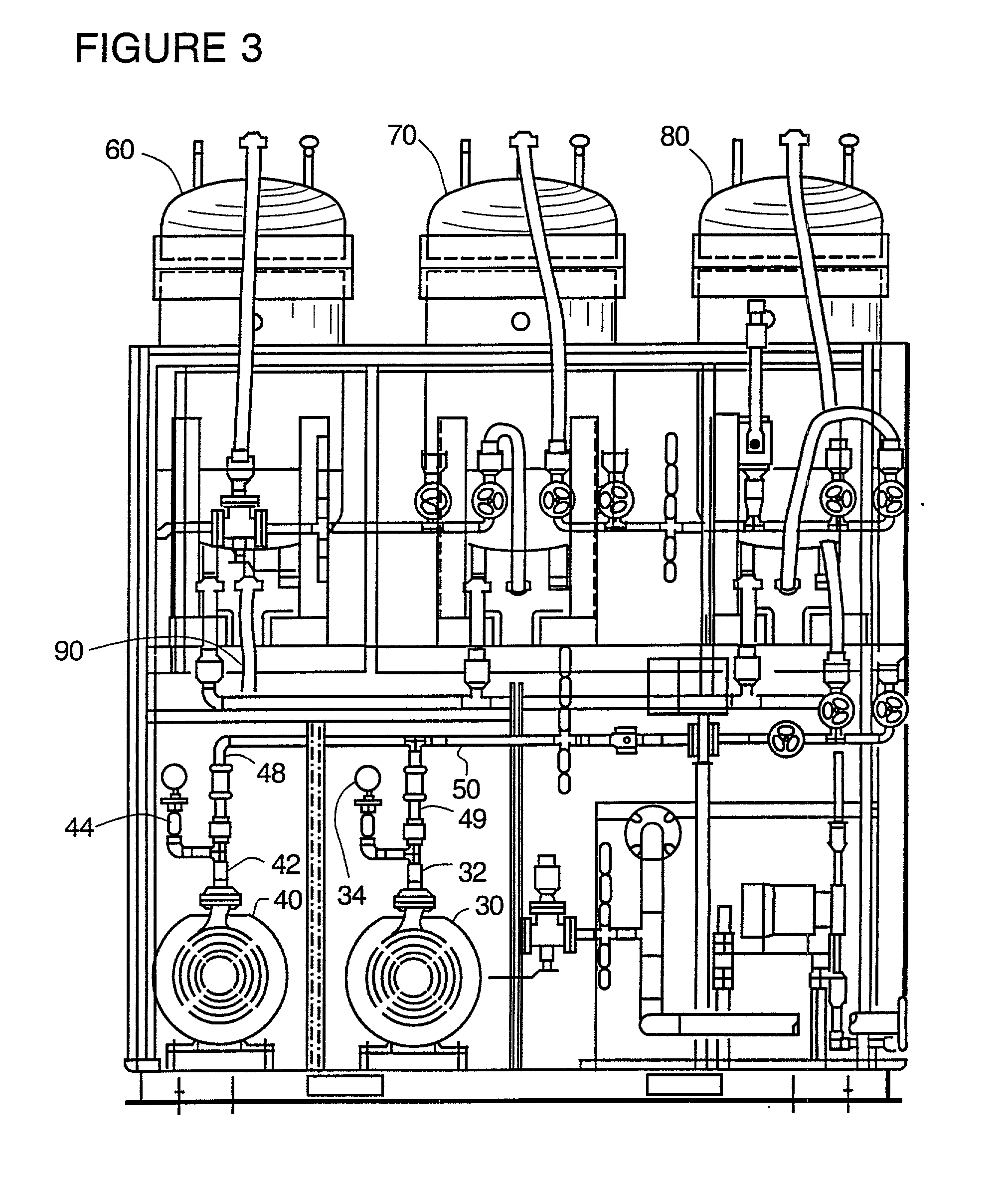Ion exchange removal of metal ions from wastewater
a technology of metal ions and wastewater, which is applied in the direction of multi-stage water/sewage treatment, filtration separation, separation processes, etc., can solve the problems of low or no capacity of conventional cation resins to remove specific metals, inability to remove peroxide in an ion exchange unit operation, and inability to remove peroxid
- Summary
- Abstract
- Description
- Claims
- Application Information
AI Technical Summary
Benefits of technology
Problems solved by technology
Method used
Image
Examples
example i
[0117] A treatability study was conducted on a series of polishing wastes from a variety of chemical mechanical polishing (CMP) operations for producing integrated circuit semiconductor microelectronic chips. Treatments were performed on the copper CMP polishing wastes received from various integrated circuit semiconductor microchip manufacturers. Treatments were performed on the copper CMP polishing wastes to investigate and determine copper removal from an alumina slurry.
[0118] A novel method and apparatus provided a first step carbon adsorption removal of hydrogen peroxide from a wafer CMP planarization polishing waste combined with a second step using ion exchange to remove complexed copper in the wafer planarization polishing waste. The wafer planarization polishing waste contained many particulate alumina solids which otherwise, i.e., if not for the copper, could be disposed via a municipal drain or sewer.
[0119] Samples used during this Example were copper CMP wastes associate...
example ii
[0132] Ion exchange tests were performed to remove copper from the alumina slurry without removing the slurry itself. Ion exchange tests were performed using iminodiacetic resin, a selective resin for heavy metal ion removal. The resins were conditioned prior to operation to be in the monosodium form as follows:
[0133] Backwash for 30 minutes to classify resin
[0134] Sulfuric Acid--6 lb / ft.sup.3
[0135] Rinse with 20 bed volumes deionized water
[0136] Sodium Hydroxide--1 lb / ft.sup.3
[0137] Rinse with 20 bed volumes deionized water
[0138] Six (6) ion exchange tests were performed using the conditioning model listed above.
[0139] All tests were performed at 1 gpm / ft.sup.3 in co-current downflow mode. The length of operation was varied.
[0140] A first stage carbon column had the general characteristics: 1".times.24" glass column before the second stage of ion exchange resin, 18" of conditioned resin.
[0141] The carbon column effluent was piped directly to the ion exchange column.
[0142] Table 3 s...
example iii
[0179] A column was partially loaded with copper from a CMP slurry. Because of an insufficient sample to allow for complete loading, a regeneration was conducted on the partially loaded column. The results of Example II had indicated that the use of sulfuric acid is only partially effective and can lead to clumping of the resin. Hydrochloric acid was used for procedure.
[0180] The resin from the top 7.0 inches of a partially loaded column was removed by siphon and loaded into another column. The following is the data for the "new" column used in the regeneration.
13 Column width: 0.59 inches Column length: 12 inches Bed depth: 7.0 inches Bed volume: 31.36 ml Bed volume: 0.00111 ft.sup.3
[0181] A 10% HCl solution was used for the regeneration of the ion exchange column. The test was run for 60 minutes at an average flow rate of 1.39 ml / min. A total volume of 83.4 ml or 2.65 Bed Volumes (BV) was processed through the column. The test was stopped after a low level of copper was detected. ...
PUM
| Property | Measurement | Unit |
|---|---|---|
| concentration | aaaaa | aaaaa |
| bead size | aaaaa | aaaaa |
| concentration | aaaaa | aaaaa |
Abstract
Description
Claims
Application Information
 Login to View More
Login to View More - R&D
- Intellectual Property
- Life Sciences
- Materials
- Tech Scout
- Unparalleled Data Quality
- Higher Quality Content
- 60% Fewer Hallucinations
Browse by: Latest US Patents, China's latest patents, Technical Efficacy Thesaurus, Application Domain, Technology Topic, Popular Technical Reports.
© 2025 PatSnap. All rights reserved.Legal|Privacy policy|Modern Slavery Act Transparency Statement|Sitemap|About US| Contact US: help@patsnap.com



